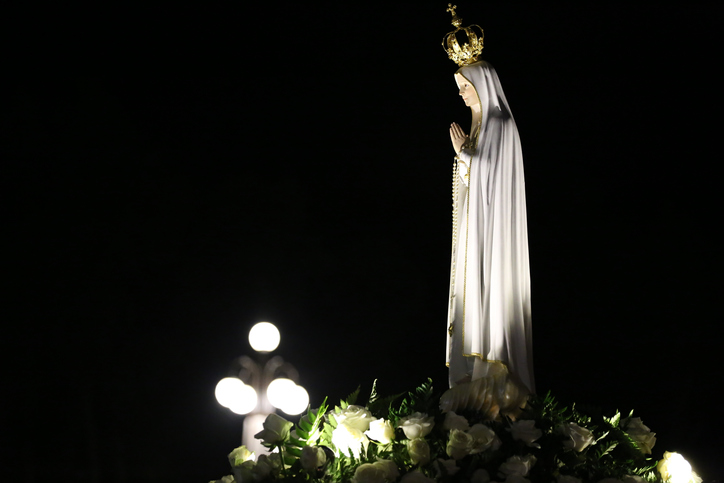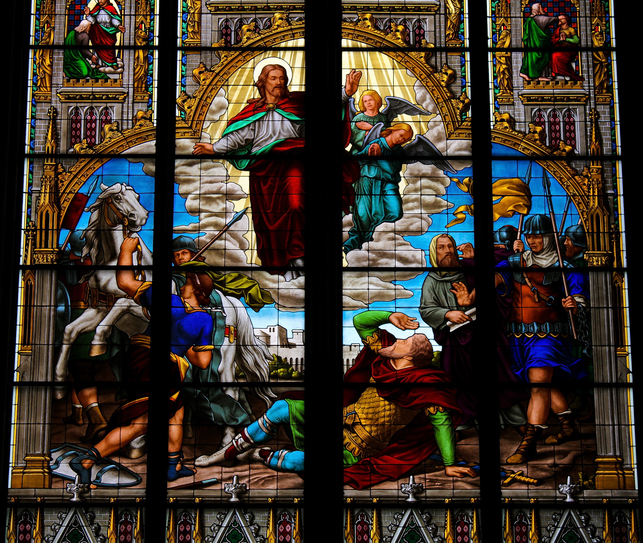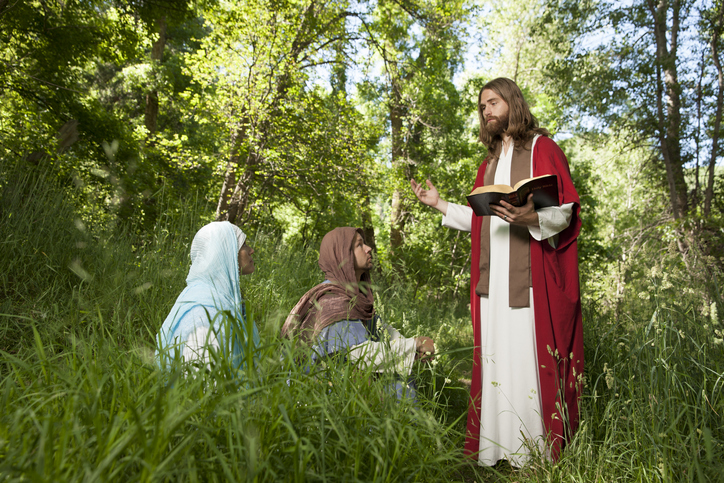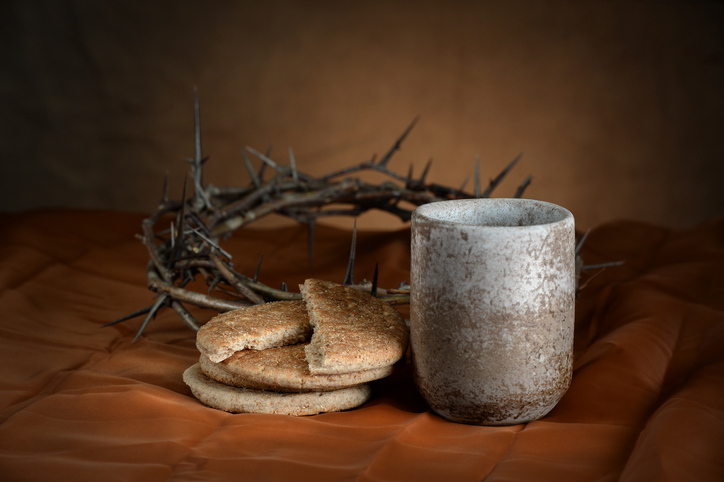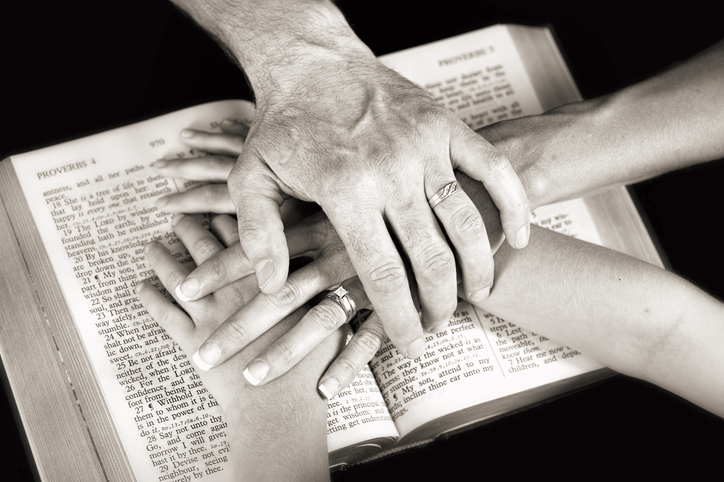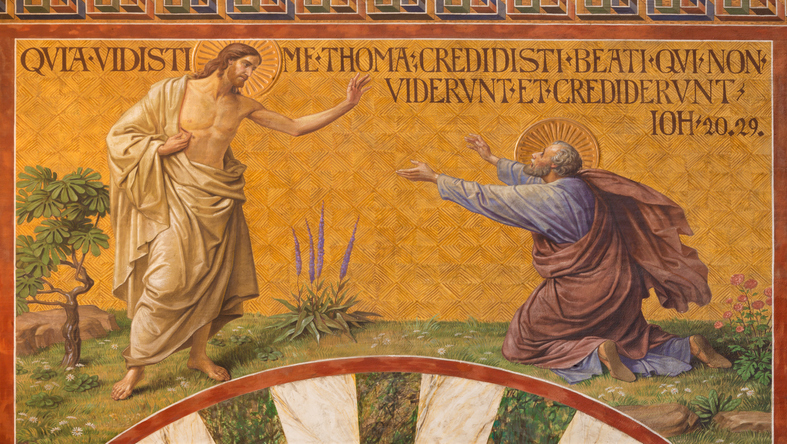Today, the Feast of Our Lady of Fatima, 3 people will make their initial Consecration to Jesus through Mary in our parish. We have spent the last 33 days “on retreat” as we have read, pondered and discussed Fr. Michael Gaitley’s book, “33 Days to Morning Glory.”
It has been one of the most profound times of preparation I have ever been through. My husband and I made our initial Consecration about 5 years ago. Looking back, I wish I had kept better track of the groups we have led through the same process since then. There have been at least a couple every year. However, this time through has been different. I have received the most amazing grace of being able to see more clearly than ever just how Mary has been working in my life and the immense changes that have happened as a result of entrusting myself to her and allowing her to lead me closer to Jesus.
In today’s Gospel reading, Jesus gives us the parable of the sheep in the sheepfold. “…he walks ahead of them, and the sheep follow him because they recognize his voice. But they will not follow a stranger; they will run away from him because they do not recognize the voice of strangers.”
Without me even consciously realizing it, ever since my consecration, Mary has been helping me recognize my shepherd’s voice. Through the power of the Holy Spirit, she has cleared my heart and my mind of so much of the flotsam and jetsam of life which blocks my really hearing Jesus’s softly whispered call. He calls with such tenderness and such mercy, he never rushes and he never forces, he waits for our “Yes” in each and every moment. The Catechism tells us that the call to conversion is on-going, “it is the movement of a ‘contrite heart’ drawn and moved by grace to respond to the merciful love of God who loved first.” (CCC 1428) Saying yes to Mary has made it easier to say yes to God in all the little things.
In the reading from the Acts of the Apostles, Peter is speaking of eating with the Gentiles and he says, “‘John baptized with water but you will be baptized with the Holy Spirit.’ If God gave them the same gift he gave to us when we came to believe in the Lord Jesus Christ, who was I to be able to hinder God?” Peter’s words are so powerful that those who are arguing with him stop immediately and begin praising God. Peter may have been talking about eating with those who were considered outsiders, but it seems to me, he could just as well have been speaking about consecration to Our Blessed Mother. We are baptized with the Holy Spirit, who has deigned to distribute his graces through the mother of his son, Mary. Through the disciple John, Jesus gave Mary as a spiritual mother to all of us. To be bold enough to use John’s words another way, if God gave the same gift, Mary, when we came to believe in the Lord Jesus Christ, who was I to be able to hinder God?
A quick word about numbers, 3 people making their initial consecration may not sound like much, but 3 people with hearts set on fire for Jesus through Mary can each set 3 more hearts on fire who then make their consecration and who each then set 3 more hearts on fire to make their consecration, who each set 3 more hearts on fire to make their consecration and before you know it Mary and the Holy Spirit have set the world ablaze with love of Jesus Christ. St. Maximilian Kolbe wanted to give not just glory to God but the greatest glory to God. He desired to do this by getting the whole world to give God the greatest glory through Mary. He called it the Militia Immaculata. The next Marian feast day is July 16, Our Lady of Mt. Carmel. Care to join St. Maximilian Kolbe in giving the greatest glory to God? Let Mary help you recognize the Shepherd’s voice.
Our Lady of Fatima, pray for us!

If you catch Sheryl sitting still, you are most likely to find her nose stuck in a book. It may be studying with her husband, Tom as he goes through Diaconate Formation, trying to stay one step ahead of her 5th and 6th-grade students at St Rose of Lima Catholic School or preparing for the teens she serves as Director of Youth Evangelization and Outreach in her parish collaborative. You can reach her through ignitedinchristnacc.com.
